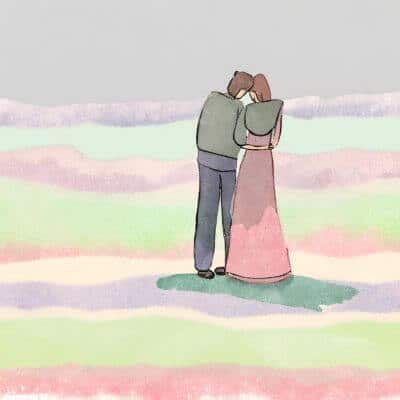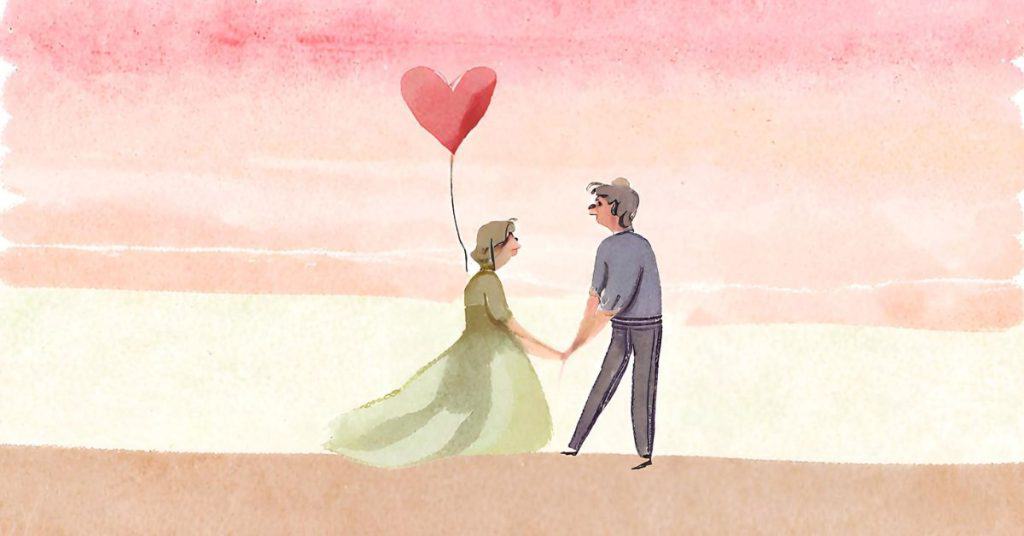Another day, another dating term for ending a romantic relationship. 10 years ago, there were only two: getting dumped or broken up with. Not anymore! Now there’s “fizzling.”
Not only are there a slew of new labels for getting uncoupled, but there are different ways of doing it. Although we’re pretty sure these methods always existed, no one designated them with a title all their own. And we have another one to add to the growing dictionary of heartbreak idioms. Hello, “fizzling.” Sounds cute, right? It’s the opposite. Allow us to explain.
Ending a romantic relationship is never easy, regardless of whether you’re the one ending it or on the receiving end. It’s always a difficult experience. But a definitive breakup at least provides closure and the chance to move forward. This is in stark contrast to the latest dating phenomenon known as “fizzling.”
“Fizzling” occurs when a person opts to end a relationship not through direct communication but by gradually reducing their engagement and affection over time. This leads to the other person eventually realizing that the relationship is effectively ending, as it metaphorically ‘fizzles out.’
This concept is not new and has been known as a “slow fade” in the past. The rise of dating apps has made fizzling—or whatever term you choose—a more prevalent method for people to disengage from relationships they no longer wish to pursue without facing immediate repercussions.
Regardless of the nature of the relationship, fizzling is not exactly a healthy (or mature) way to end things. Experts suggest that fizzling can be more hurtful than a traditional breakup. Why? A few experts are gonna explain!

What is Fizzling?
Fizzling, as the term suggests, refers to the gradual fading out of a relationship. “It’s used to describe when someone loses interest in their dating partner and chooses to slowly reduce contact and interest instead of breaking up directly, leaving the other person feeling confused and hurt,” says celebrity matchmaker Rachel London. Fizzling can happen at any stage in a relationship, from a few weeks of casual dating to after a year of monogamy.
Fizzling shares similarities with ghosting. However, dating and relationship expert Amber Soletti notes that fizzling might be more challenging to deal with. “With ghosting, there’s no closure, but at least it’s clear the person is gone from your life. Fizzling is more vexing because you’re still in contact, maybe even meeting or being intimate, but it happens less frequently, and the time between interactions grows longer. Instead of being pushed to move on, this sporadic attention keeps you hoping.”
It’s important to recognize that fizzling often isn’t done with bad intentions. Sometimes, people aren’t even aware they’re doing it. The person might have an avoidant attachment style, making it hard for them to build intimacy and connection, or they might struggle with articulating their feelings or understanding what they want from the relationship. Understanding this doesn’t justify fizzling, but it can help to know that it’s not necessarily about you.
Still, whether intentional or not, many experts agree that fizzling can be the most painful way to end a relationship due to the lack of closure and ensuing confusion.

Signs Your Relationship Is Fizzling
Recognizing fizzling can be straightforward for some, as they might notice their partner communicating less or showing little interest in spending time together. For others, it might not be as apparent. Here are some signs of fizzling, according to Soletti:
- Delayed responses to texts, sometimes taking days.
- Shorter text and phone conversations.
- Less engaging conversations, leaving you at a loss for responses.
- Lack of effort in making plans, often ditching you at the last minute.
- Excuses about being less available due to work or other commitments.
- A noticeable lack of engagement and distance when together.
- Cutting plans short.
- Being distracted by their phone or surroundings when together.

What to Do If You Suspect Your Relationship Is Fizzling
London suggests that if you think your relationship is fizzling, the best approach is open and honest communication. You could start the conversation with, “Hey, I’ve noticed our interactions have changed, and we haven’t seen each other much lately. How are you feeling about us? Is there anything on your mind?”
This approach invites a discussion in a non-threatening way, indicating you’re aware something is off and would like to talk about it. If this conversation doesn’t lead to a mutual understanding, then it’s time to accept the fizzling as a disrespectful form of breakup. If someone opts to end your relationship through fizzling, they’re probably not someone you’d want in your life to begin with.
Takeaways
Fighting for a relationship that’s fizzling might not be worth your effort, especially since Soletti suggests there’s no guaranteed way to prevent it. Instead, hold your boundaries, and if your romantic partner isn’t meeting your needs for quality time and communication, it might be best to end things yourself.
On the other hand, if you find you’re the one fizzling, be honest about your feelings. It might be uncomfortable—confrontation is hard—but clear communication is the kindest way to provide closure. London advises, “If you see no future with this person, be clear about your reasons, leaving no room for misinterpretation.”
While experts recommend having this conversation in person, a direct, concise, and clear text could also suffice, making sure there’s zero ambiguity about your lack of romantic interest. In other words, don’t be a fizzler.




